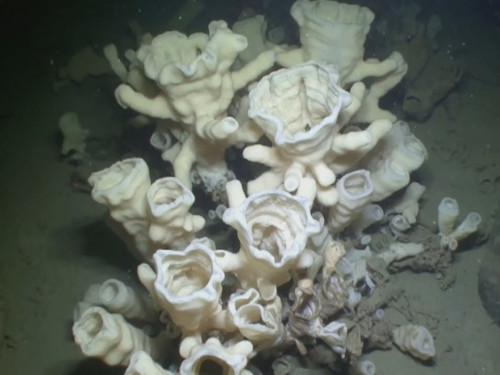SUBSCRIBE TO THE FREE NEWSLETTER
New poetry at Cascadia Magazine: “Ensō” by Shin Yu Pai
“an animal died
in the making of this poem
cephalopods thrown into a plastic cooler,
the clear ziplocked bag of bodies
drawn to the Sound
in the hope of sex”
Cascadia Magazine is honored to publish a long, rich, and profound poem by Seattle-based poet Shin Yu Pai entitled “Ensō.” It’s a complex dive into mortality, meaning, squid biology, Zen, and creating art in the space where cultures intersect.
Take some time to give it a read, it’s a poem that has many rewards for the patient reader. Find it online here.
At Cascadia Magazine, we publish high-quality writing that requires you to put away distractions and slow down. If you appreciate this sort of writing, please take a moment to support Cascadia Magazine during our Spring Fund Drive. We need $10,000 to continue to keep the publication going, and we depend on our readers to make this happen. You can make a contribution at our donate page, and we especially appreciate recurring donations. Thanks!
Report calls violence against Indigenous women “genocide”
High Country News looks at the 1,200 page national report in Canada on missing & murdered Indigenous women that was released this week, and The Tyee has reaction from First Nations leaders and activists in British Columbia on what’s needed to address the crisis. Crosscut interviews Abigail Echo-Hawk, chief researcher at the Indian Health Board, who publicized a report that found 94 percent of Native women in Seattle surveyed had experience some form of sexual violence. And the Salish Sea Sentinel reviews an exhibit at the Museum of Vancouver featuring art by Indigenous children in the horrific residential school system in British Columbia in the mid-20th century. For more on how the Umatilla tribe in Oregon is using new authority to prosecute acts of domestic violence read this feature at Cascadia Magazine.
Pedestrian and bicycle fatalities on the rise in WA
KNKX looks at a new report from the Washington Department of Transportation that finds 123 pedestrians and bicyclists were killed in the state in 2018, an increase over previous years. In related news, Willamette Week wonders why Portland, which is committed to reducing climate impacts, is expanding a public parking lot for cars. Meanwhile, the Vancouver Sun notes that although Vancouver has a great system of bike lanes, the system in the suburban Fraser Valley is much more fragmented.
Oregon sex ed curriculum expands to consent, gender expression
OPB reports on how schools across Oregon are adding new, state-mandated instruction to their sex ed curriculum regarding consent, gender expression, and sexually transmitted diseases. “One of my students who prefers the pronouns them/they came up to me after class, literally in tears, saying this is the first time they ever felt recognized in a health classroom,” said one teacher.
Fishing practices choking Salish Sea sponges
Over at CHEK, read a Canadian Press report on how the fishing practice of trawling is dumping sediment on glass sponge reefs in BC’s Hecate Straight and Queen Charlotte Sound, and killing them. In other dumping news, Alaska Public Media looks at a court case against Carnival Cruise Lines, which is accused of dumping 26,000 gallons of wastewater into the waters of Glacier Bay National park and only faced a $250 fine. Meanwhile, Exxon has been ordered to pay $1 million in damages for pipeline spill into a stretch of the Yellowstone River in Montana.
Drama awards in Vancouver BC & Portland
Oregon Arts Watch reports on the Portland Area Musical Theatre Awards (PAMTAs), in which a revival of Guys and Dolls and the new children’s musical The Legend of Rock Paper Scissors scored big. And The Georgia Straight looks at nominees for Vancouver BC’s “Jessie” awards for local drama, including the innovative Le Soulier and the all-women Indigenous drama Kamploopa.
Poetry by Seattle’s Katy E. Ellis
This month’s poet-in-residence at the Seattle Review of Books is Katy E. Ellis, and you should check out her poem “All Signs are Dares,”
“Why we decided no headlights
through Snoqualmie Valley dark
early March after the hospital
visit to my open-heart grandfather
I will not understand…’
Read the full poem here.
That’s all the news and culture from across Cascadia that fits in a little email newsletter. Have a good evening and see you tomorrow. –Andrew Engelson
Photo credit: screenshot from a CBC report on glass sponge reefs via YouTube

